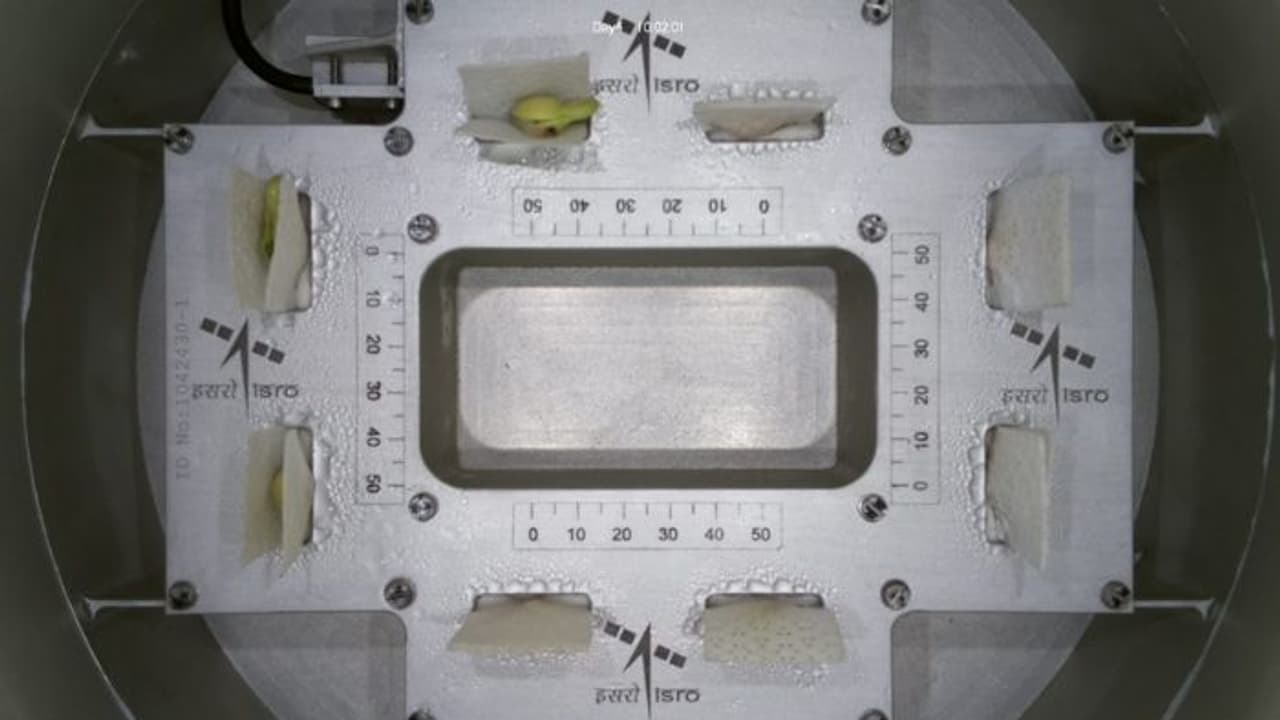ISRO's CROPS experiment onboard PSLV-C60 POEM-4 successfully germinated cowpea seeds in microgravity within four days, marking a breakthrough in space agriculture. Developed by VSSC, the experiment provides insights into plant growth in space.
Indian Space Research Organisation (ISRO) has successfully germinated cowpea seeds in microgravity conditions during the PSLV-C60 POEM-4 mission. Conducted using the Compact Research Module for Orbital Plant Studies (CROPS), this experiment marks a major step forward in studying plant growth in space environments.

The CROPS payload, developed by the Vikram Sarabhai Space Centre (VSSC), is a highly advanced automated system designed to examine seed germination and plant sustainability in microgravity. As part of the mission, eight cowpea seeds were placed in a specially designed, temperature-controlled closed-box environment. These seeds sprouted in just four days, and ISRO scientists anticipate leaf growth in the coming days.
Empowering private space : NGEs ride on IN-SPACe back in PSLV-C60/SpaDEx mission
This experiment lays the groundwork for understanding how plants adapt and grow in space, an essential component for future space missions. With long-duration space travel and potential human settlements on other planets in mind, this development is pivotal in exploring sustainable agricultural methods for extraterrestrial environments.
The CROPS module features state-of-the-art monitoring technologies, including high-resolution cameras, oxygen and carbon dioxide sensors, humidity detectors, temperature monitors, and soil moisture measuring devices. These tools ensure precise tracking of plant growth in real-time, providing invaluable data for space agriculture research.
The experiment was conducted as part of the PSLV Orbital Experiment Module (POEM-4), which carried 24 advanced payloads developed collaboratively by ISRO and academic institutions. This initiative highlights India’s growing emphasis on space research and innovation.
The seeds were sent into space on December 30, 2024, aboard the PSLV-C60 rocket under the Spadex mission, a space docking technology initiative. ISRO shared the success of this experiment on the social media platform 'X', stating, “Life begins in space! VSSC's CROPS experiment was successfully conducted on PSLV-C60 POEM-4. Cowpea seeds germinated in four days and leaves are expected soon.”
Isro successfully launches SpaDeX Mission to test docking, pave way for Chandrayaan 4, Gaganyaan (WATCH)
This achievement opens doors for future space exploration and long-term missions. The ability to grow food in space is crucial for self-sustaining space habitats, reducing reliance on Earth-based supplies. CROPS is designed as a multi-phase initiative to develop reliable agricultural systems for space expeditions.
With this remarkable success, ISRO has solidified its position in global space exploration. The innovative use of technology and collaborative research demonstrates India’s capability to lead in space biology. The CROPS experiment also reinforces the "Make in India" initiative, showcasing indigenous technological prowess.


